Floodlight 2024 annual report
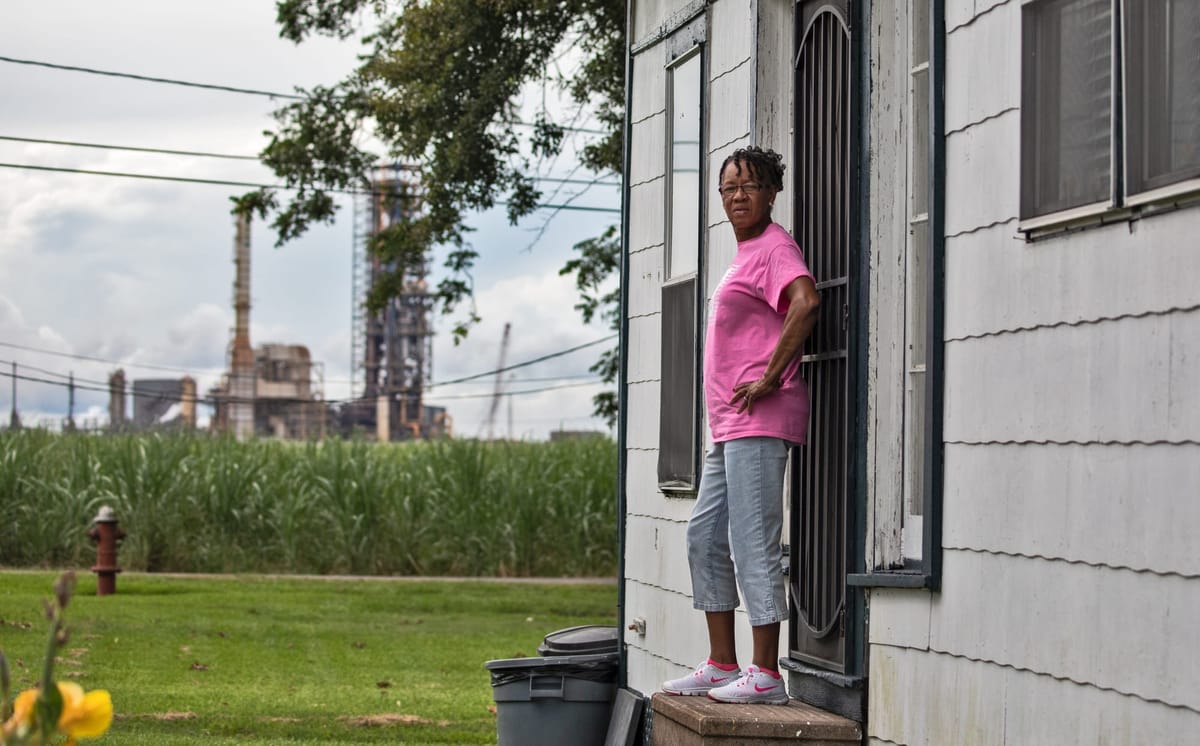
Floodlight supporters and subscribers,
The past year has been one of growth and great progress for Floodlight, which I founded in 2021.
We revealed a secret network blocking renewable power, tracked how campaign cash is slowing the energy transition and reported from fenceline communities fighting against pollution. In 2024, our staff of eight produced a record amount of coverage and greatly increased the number of people who subscribe to our newsletter. In April, we shifted our model to broaden the audiences we reach. We launched a new website to showcase our insightful stories uncovering the forces stalling climate action and to make it easier for newsrooms to republish our work.
We began distributing our stories widely to reach the largest national and local audiences possible. In 2023, 18 news outlets published our stories. In 2024, that number was more than 60.
Floodlight had a roughly $1.2 million budget in 2024, and we worked hard to put our independent nonprofit news organization on solid financial footing for 2025 and beyond.
This past year, we secured commitments from major new funders and loyal past supporters including the John D. and Catherine T. MacArthur Foundation, Schmidt Family Foundation, Equation Campaign, Bloomberg Philanthropies’ Beyond Petrochemicals, Energy Foundation and the 2030 Fund.
In 2025 we plan a major push to increase the number and types of people who see Floodlight stories — and to better engage with our audience. Expect to hear more from us in the coming year as we bring on our first-ever audience director.
Thanks to all of you for your ongoing support for the important work we do to cover the biggest story on Earth.
Emily Holden
Floodlight founder and executive director
Our top stories
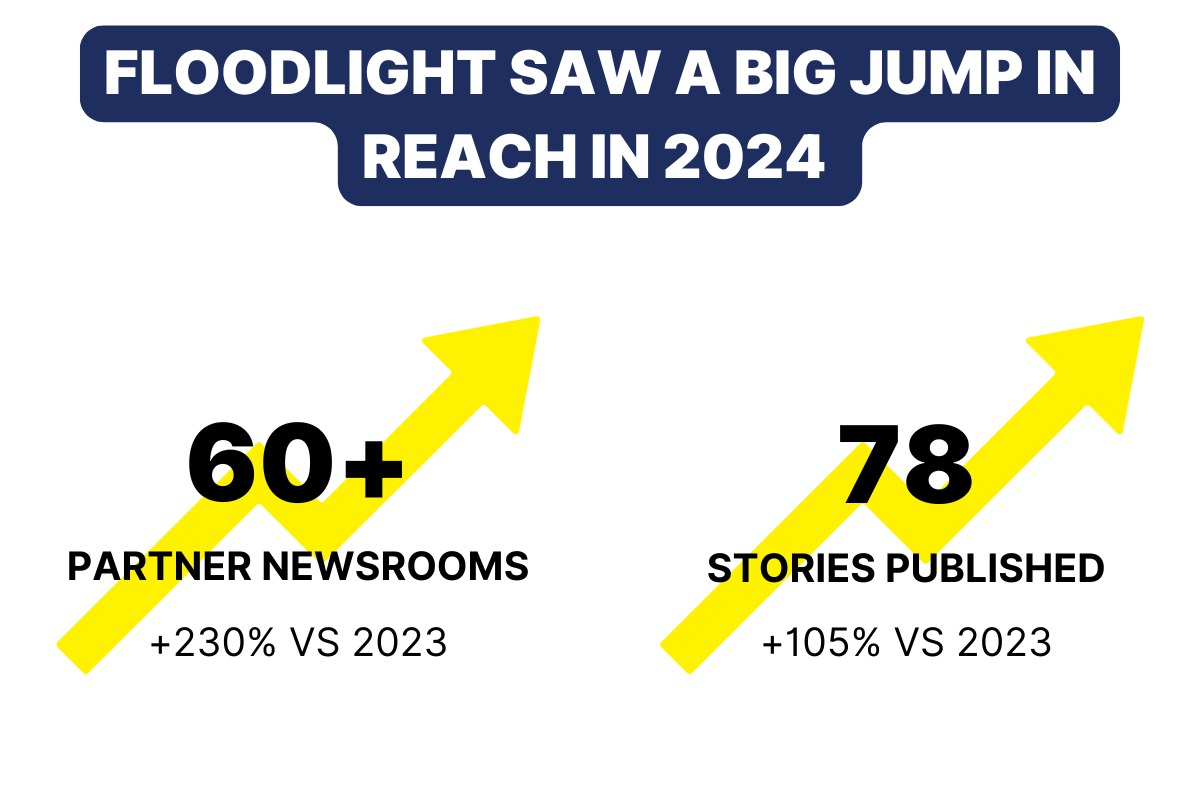
In 2024, Floodlight pivoted to begin growing its newsletter subscribers and website visitors, rather than relying exclusively on partnerships. Floodlight reporters exposed how utility companies and fossil fuel interests stalled climate action while padding their own bottom lines and manipulating the public. We raised questions about challenges to President Joe Biden’s massive effort to mitigate climate change. And we explored how environmental justice advocates were winning battles against industries exacerbating the climate crisis.
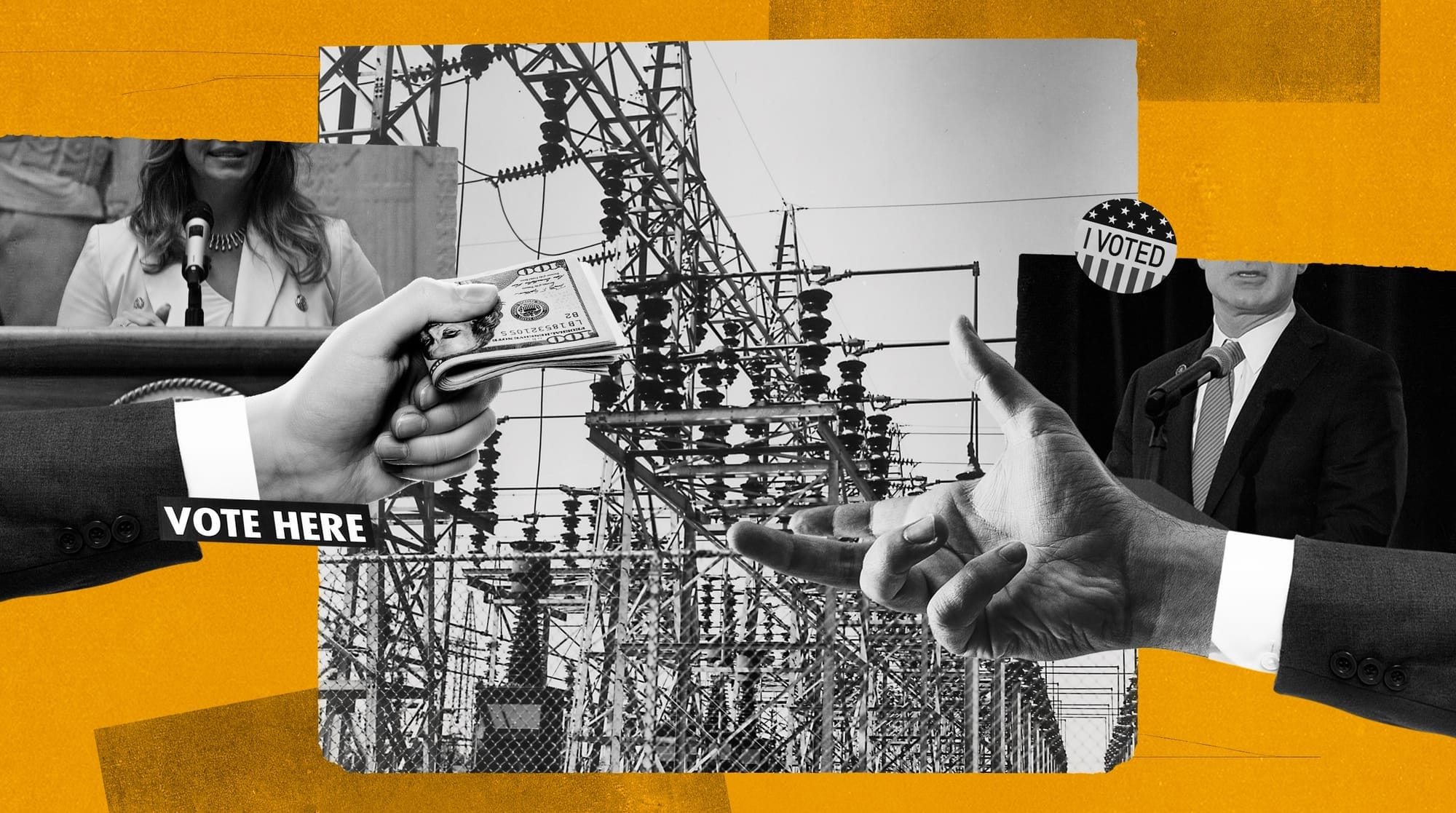
Pam Radtke, with help from fellow reporters Mario Alejandro Ariza and Miranda Green, showed how the Louisiana Public Service Commission was uniquely tilted in favor of the monopoly power companies it regulates. That story was one of a two-part series on the influence of campaign cash on elected utility commissions. Our first-of-its-kind look at contributions to these regulators found that at least $1 of every $3 donated to candidates came from utility or fossil fuel interests.

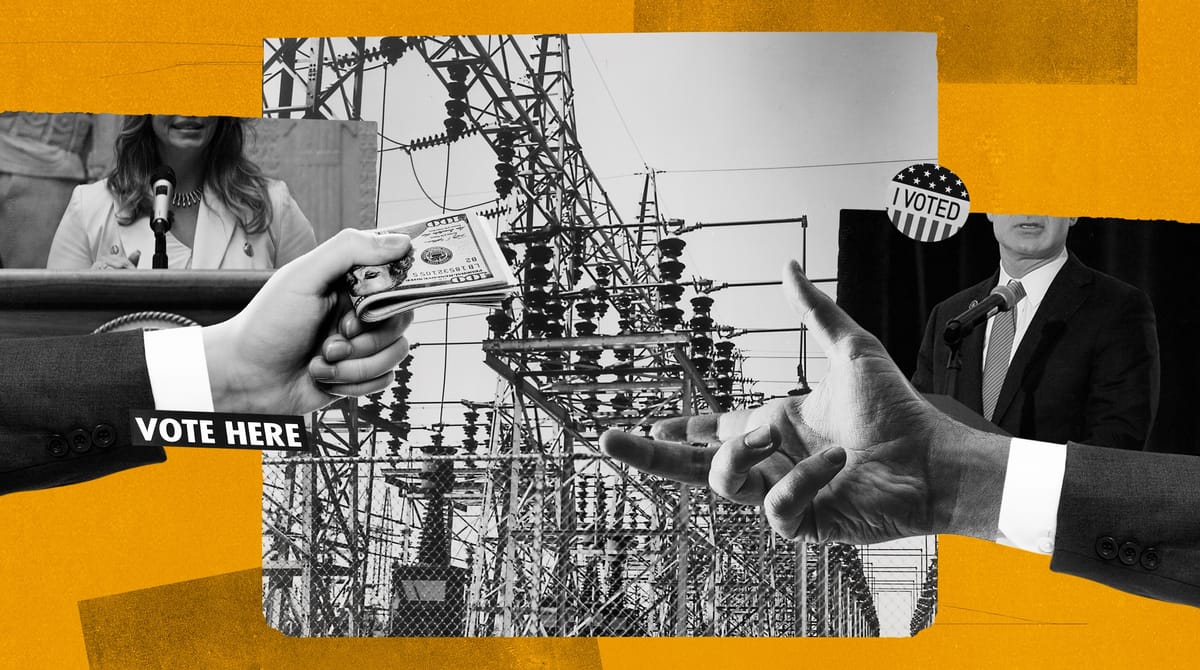
Reporter Miranda Green partnered with ProPublica and the Tow Center for Digital Journalism to expose a secretive network operating in Knox County, Ohio to block solar. The players included a hometown newspaper bought by a “pink slime” media company, a local philanthropist and business leader tied to the gas industry and a faux grassroots organization funded by dark money from fossil fuels.
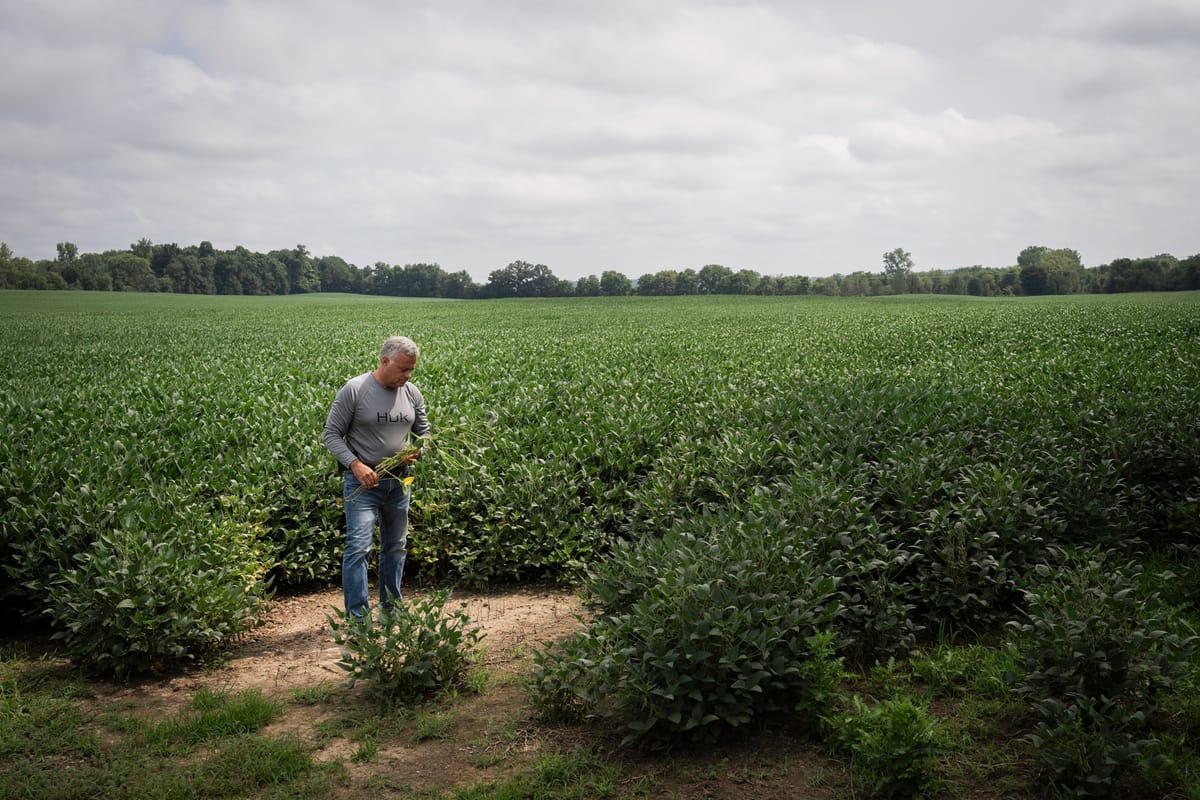
Reporter Terry L. Jones showed how Louisiana environmental justice advocates — many of them Black women — had won decisive battles against further industrialization in their fenceline communities. In a separate story, Jones documented how advocates were “gobsmacked” that their efforts caused cancellation of an $800 million, 20-story grain elevator that would have dwarfed their historic community.
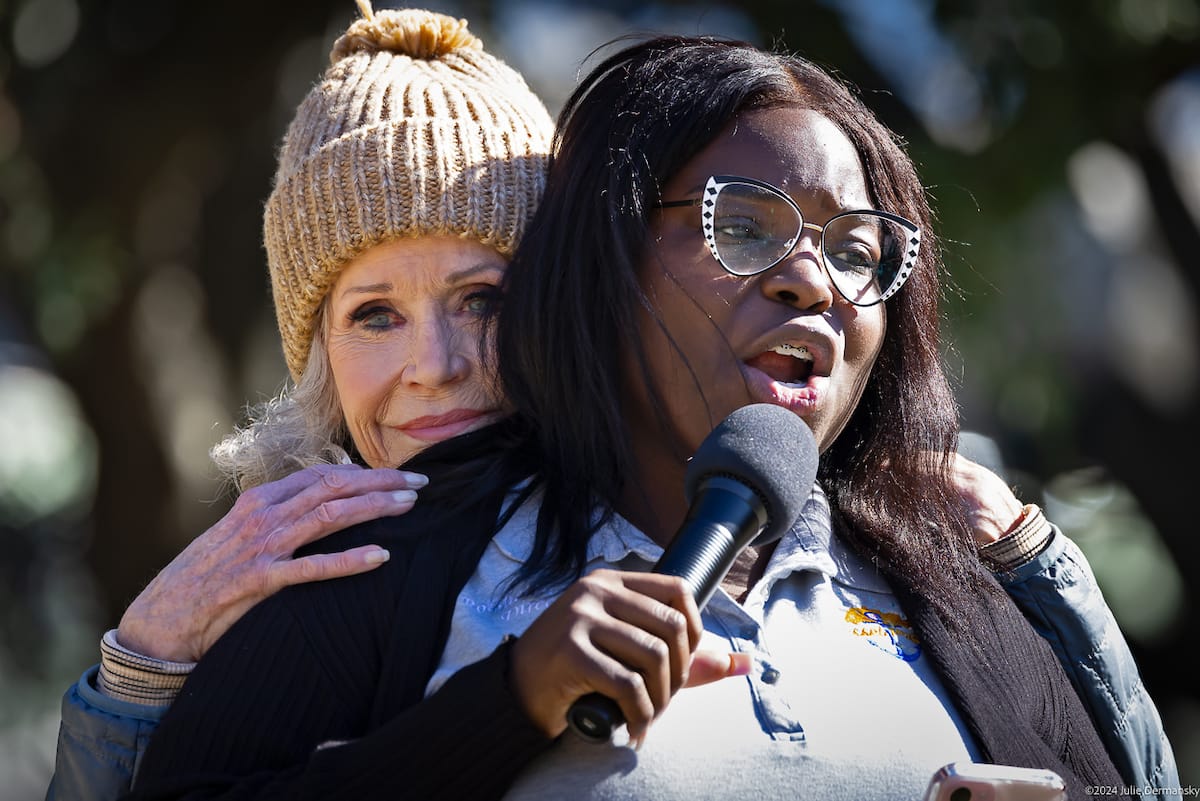

Floodlight reporter Kristi E. Swartz exposed how utility regulators in Mississippi actively worked against adoption of solar power in one of the sunniest states in the country. Kristi also produced a foundational story about the barriers to increasing the use of nuclear power to meet greenhouse gas emission targets.
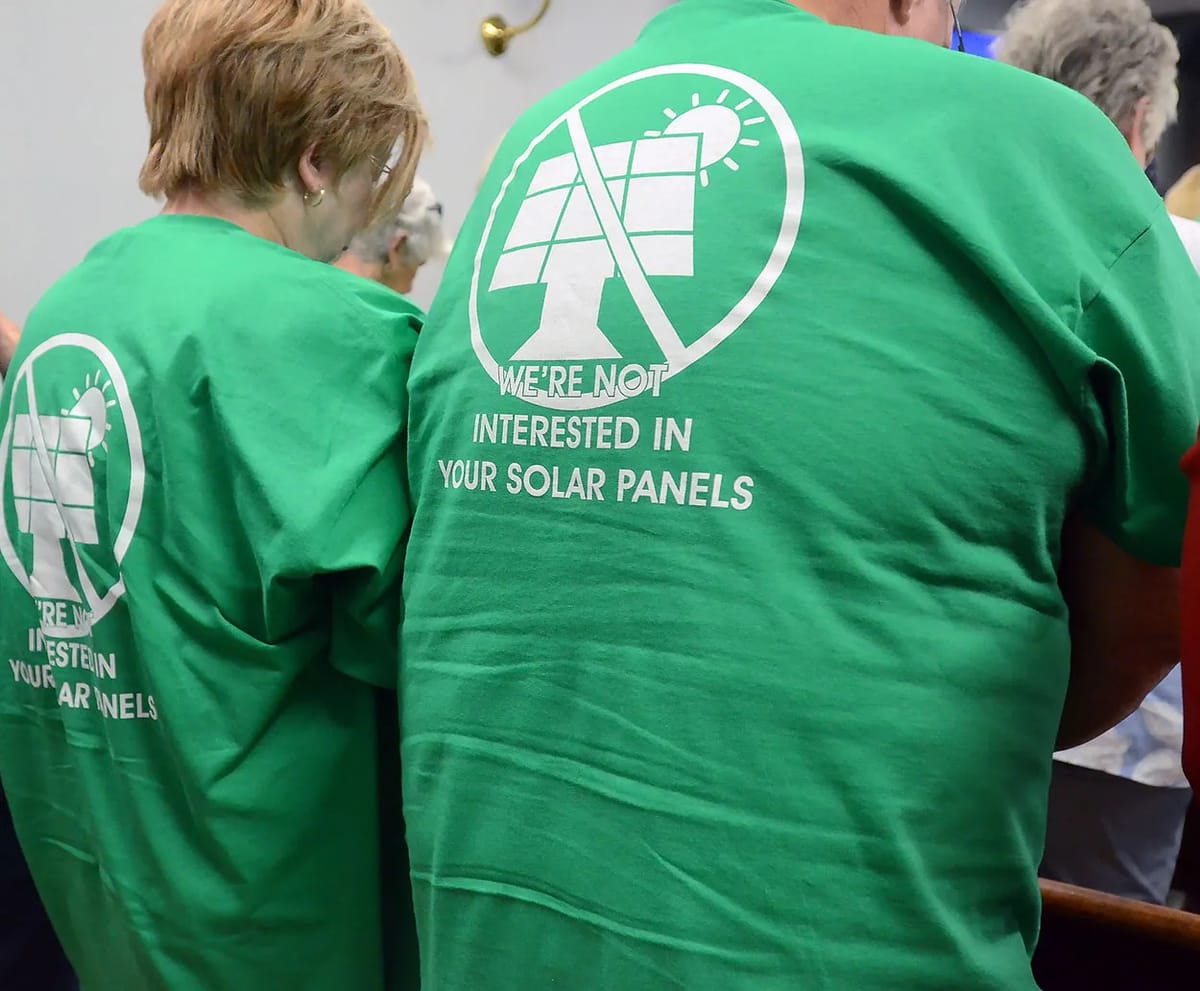
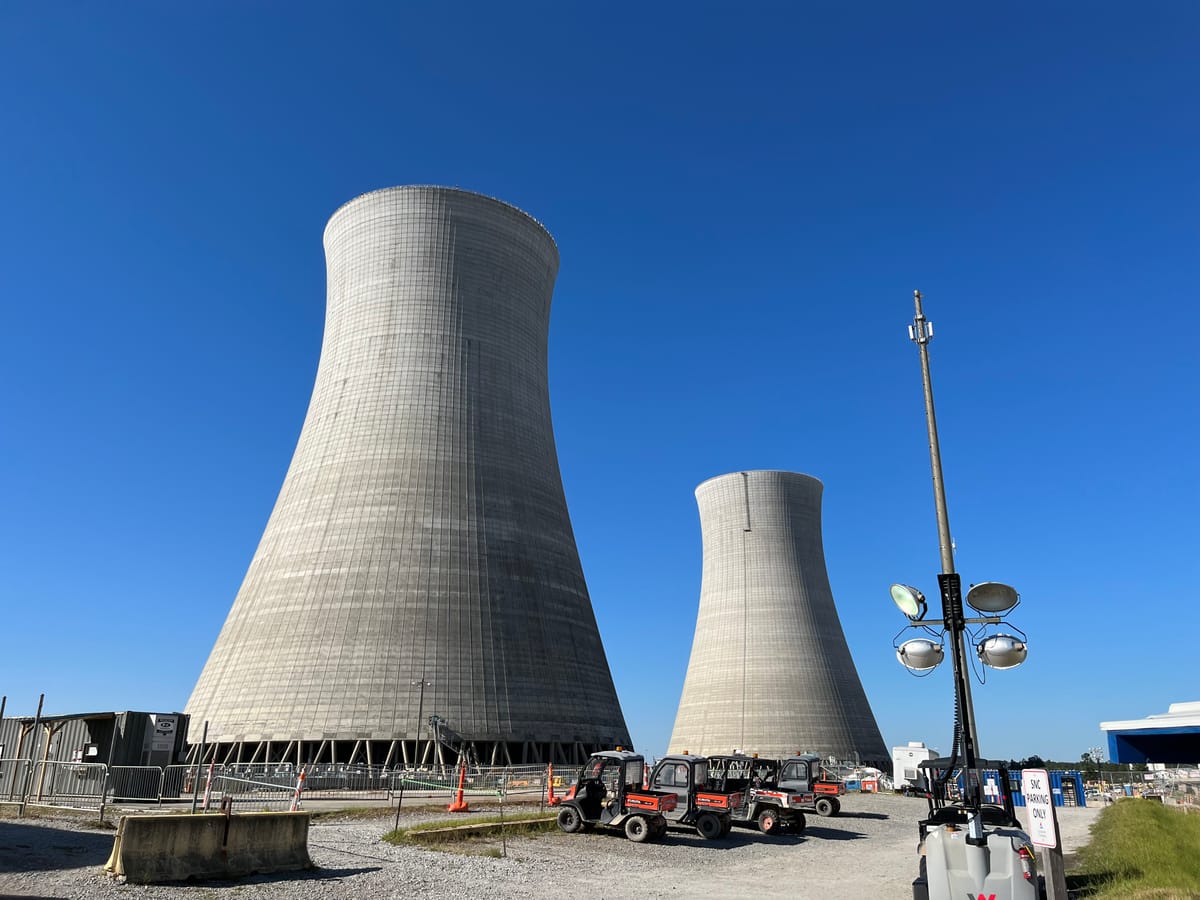
Mario revealed that more than two dozen Black civil rights leaders in the Southeast had been high-value targets in power companies’ battle for market dominance. The investigation — in collaboration with Capital B, which focuses on how Black people experience America today — found the leaders were courted and at times even co-opted by the industry.
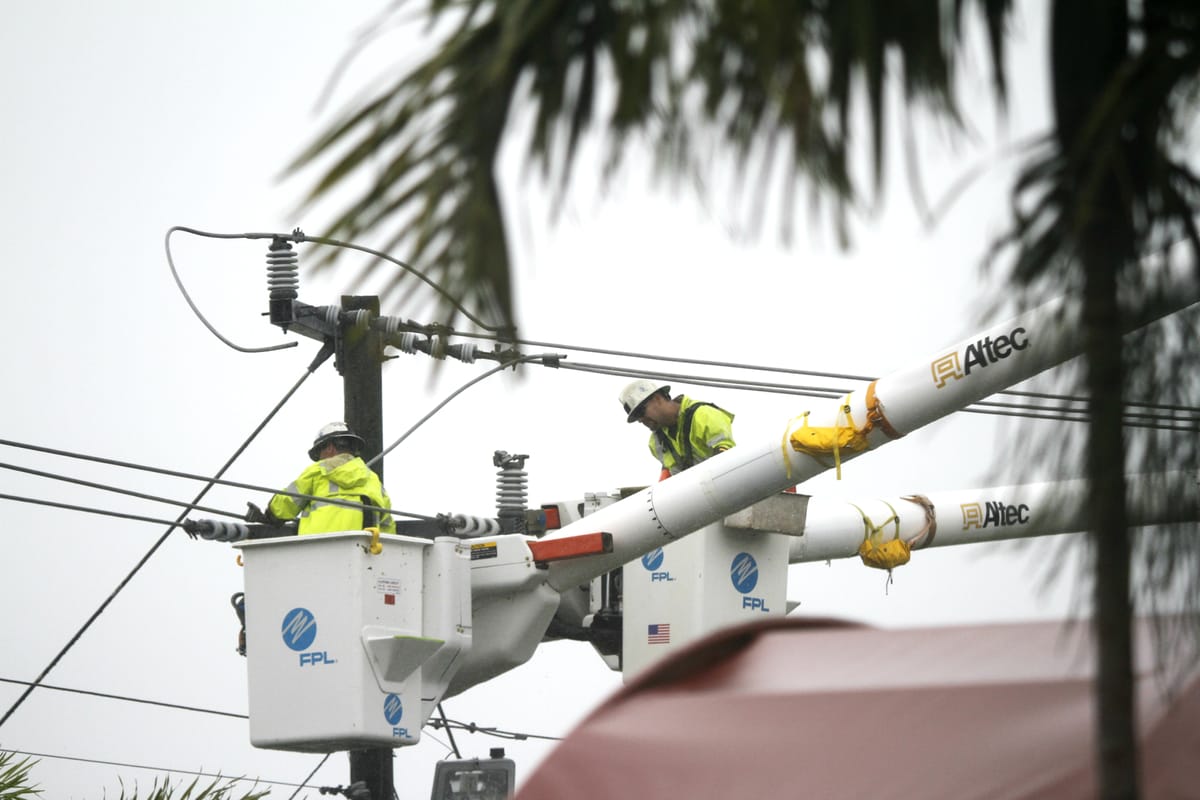
Mario and Kristi also showed how the United States is seeing a generational resurgence of fraud and corruption in the utility sector. That is based on a Floodlight analysis of 30 years of corporate prosecutions and federal lawsuits. And it comes at a time when trillions of dollars and the health of the planet are at stake as some power companies embrace — or seek to block — the transition away from fossil fuels toward wind, solar, hydrogen and nuclear, which produce fewer greenhouse gasses.
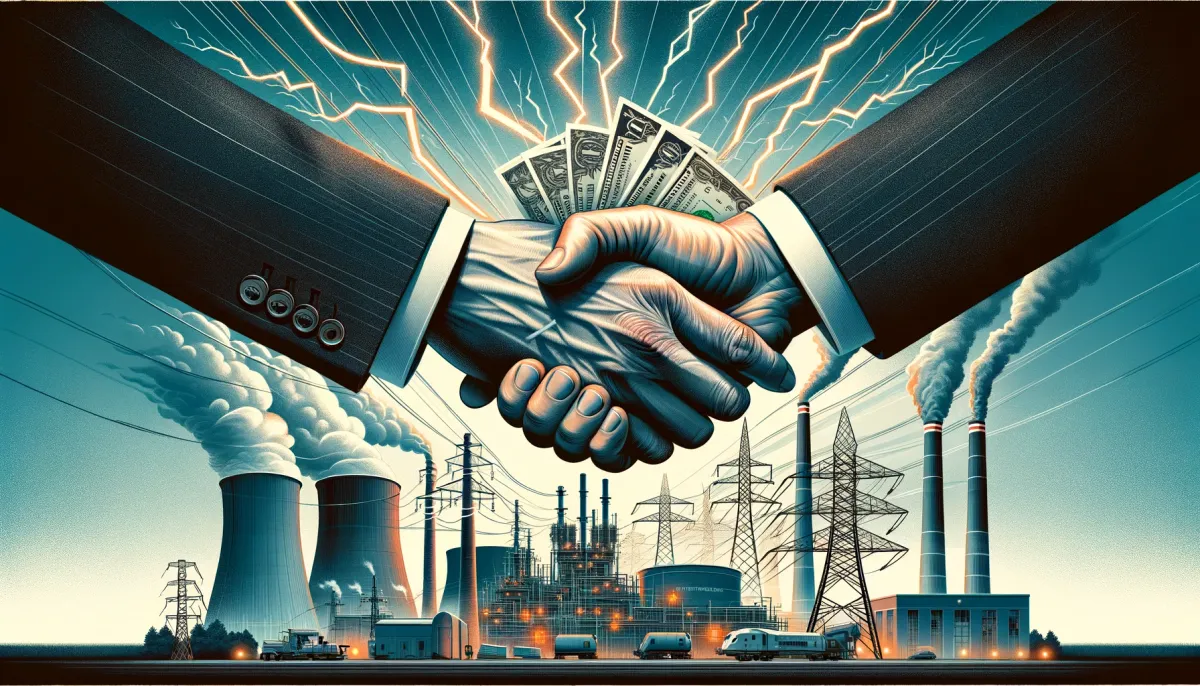
Staff and freelance reporters for Floodlight produced nearly a dozen stories raising questions about how well Biden’s Inflation Reduction Act was working to reduce greenhouse gas emissions.
Questions include the viability of hydrogen as a fuel source, the impact of lithium mining and hydrogen development on scarce water resources in the West, whether pricey anaerobic digesters are the best way to cut methane emissions from dairy farms and whether billions in federal funding for solar can overcome powerful forces arrayed against it. We explored the widespread misinformation stalling the adoption of electric vehicles. And we reported that although many Republicans including incoming President Donald Trump oppose the IRA, 85% of the money under the law goes to GOP-run states.
Floodlight also produced eight stories in 2024 about the explosive growth of the liquefied natural gas industry, which is threatening both climate goals and quality of life in Louisiana and Texas. And we published six stories raising questions about carbon capture — a key climate strategy that the United States and the world are counting on to get us out of the climate crisis.
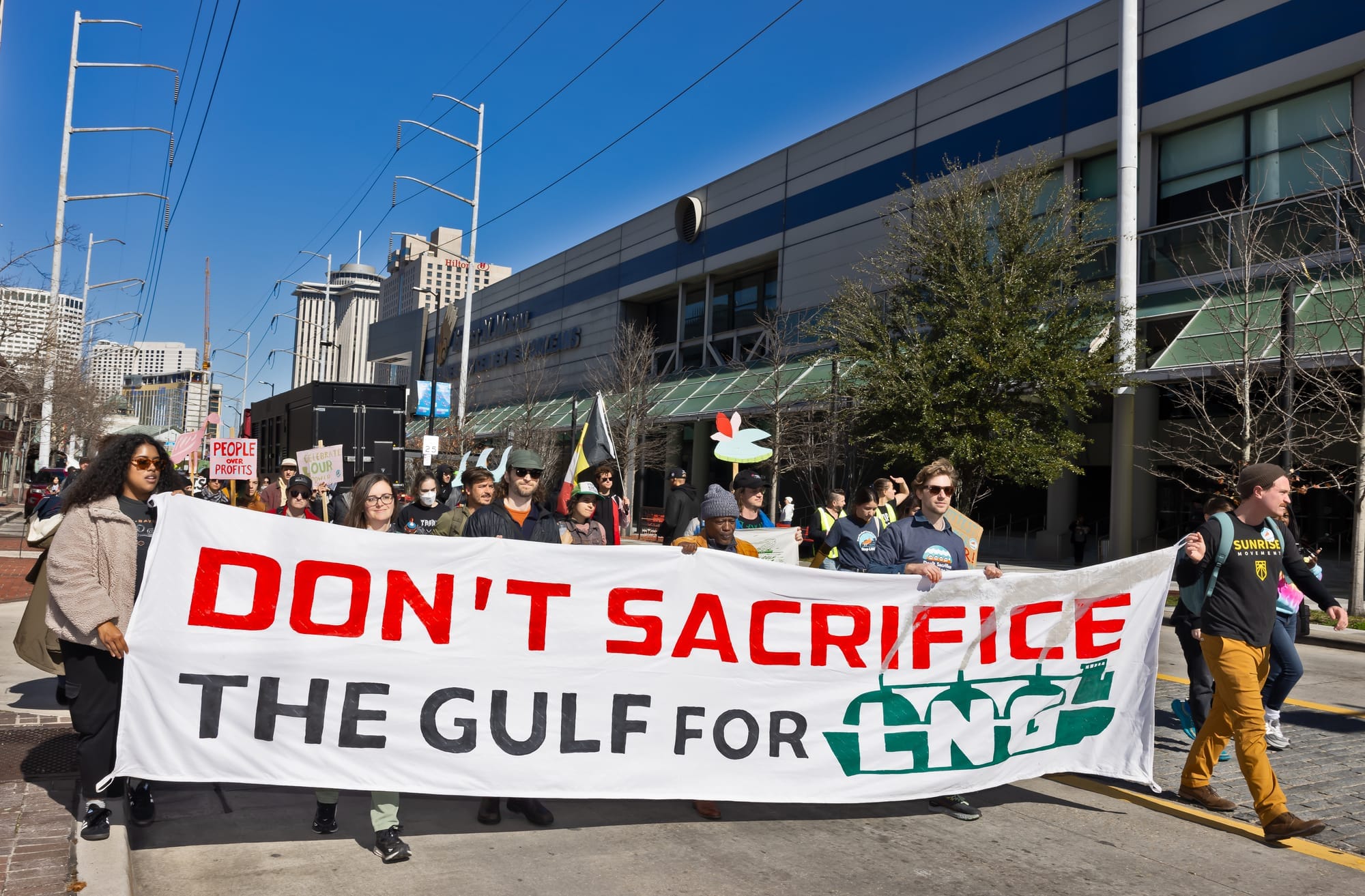
Our award-winning coverage
Floodlight stories were recognized by our peers and climate-focused nonprofits for impactful coverage.
Miranda Green and Mario Ariza picked up top honors at the Southern Environmental Law Center media awards in April. The Reed Environmental Writing Award is designed to “demonstrate the power of writing to capture some of the most important environmental issues facing Southern communities.” Miranda and Mario were recognized along with NPR’s David Folkenflik for their story In the Southeast, power company money flows to news sites that attack their critics.

Miranda also received second place in the National Headliner Awards for another NPR collaboration: An activist group is spreading misinformation to stop solar projects in rural America. Miranda was named along with NPR’s Michael Copley.
Terry Jones was chosen to receive a travel fellowship to attend the annual Society of Environmental Journalists national conference.
Mario was selected for the 2024 cohort of the NYU Stern Climate Economics Journalism Fellowship. He was one of 32 fellows chosen from a pool of 600 applicants.
Pam was chosen as a 2024 fellow with the Institute for Environmental Communication at Loyola University-New Orleans. The fellowship brings together a diverse cohort of people working on environmental issues to foster communication and find “workable, sustainable solutions to environmental conflict.”
Our collaborative model
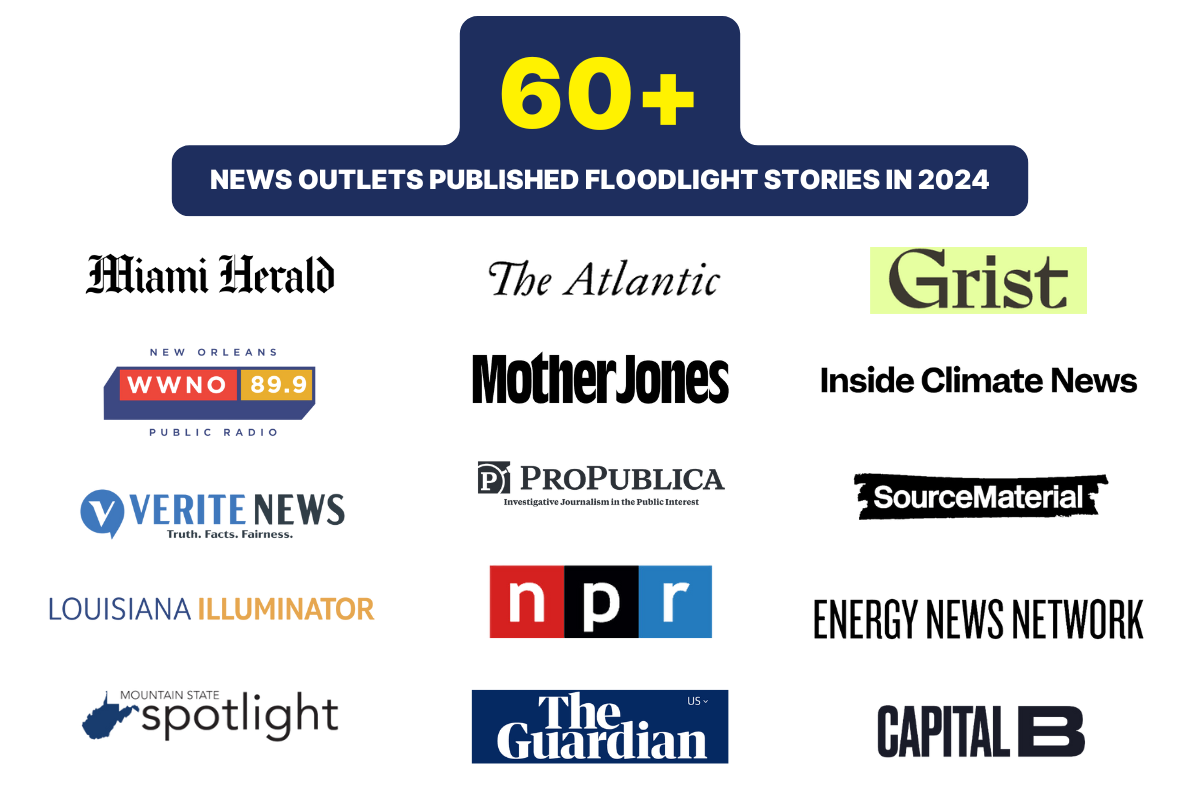
This year at Floodlight, we expanded our collaborative model to include all types of partnerships with news outlets.
Our previous model relied on 1-on-1 collaborations for each story. Now, we have a variety of partnerships ranging from simply republishing Floodlight stories to co-reporting, editing and fact-checking or providing graphics, illustrations or photos.
Each story is offered for republication to nearly 300 editors around the country.
In 2024, more than 60 news outlets republished Floodlight stories. We collaborated with national news organizations including The Guardian, The Atlantic, Mother Jones, NPR and ProPublica.
Environmentally focused news sources including Grist, Canary Media, Energy News Network and Inside Climate News also ran our stories, as did SourceMaterial, a UK-based investigative news outlet.
Local news outlets from West Virginia to California, New Mexico to North Dakota and many places around the United States published Floodlight stories.
Other news sites that picked up Floodlight stories include ethnic news outlets Capital B, Verite and ICT.
Our most consistent news partners continue to be Louisiana Illuminator and WWNO (New Orleans Public Radio) — close collaborators on our deep coverage of the Gulf Coast.
Our partners
"Reporting from the Floodlight team really helps round out our coverage of environmental issues in Louisiana. Their accountability journalism focused on fossil fuels certainly brings much-needed context and hard facts to subjects that are often rife with industry-driven disinformation."
— Greg LaRose, editor, Louisiana Illuminator
“Floodlight has been a valuable partner, helping us fill coverage gaps on key climate stories, particularly in the South where we lack an institutional presence. I appreciate their responsiveness and flexibility on the stories we've co-published, and their careful attention to getting their facts right.”
— Michael Mechanic, senior editor, Mother Jones
“Collaborating with Floodlight was a great experience, and together, we produced a piece that was more in-depth than either of our newsrooms could have done on our own. It was one that resonated so deeply with West Virginians, it was one of our most-read pieces of the year.”
— Erica Peterson, editor-at-large, Mountain State Spotlight
“Floodlight brought us an intriguing idea for a story and then expertly teamed with our reporting and editing team to produce a revelatory story. The story, about misinformation surrounding solar energy, was based in small-town Ohio but had national ramifications and engaged our national audience with a compelling mix of investigative findings and on-the-ground drama.”
— George Papajohn, senior editor, ProPublica
“Floodlight is a hard-hitting industry watchdog whose coverage of the fossil fuel industry and the transition to clean energy we both cite in our own reporting and … republish for Inside Climate News readers. While we have our own team of oil and gas reporters dedicated to accountability journalism, climate change is the biggest story in the world, and we can't chase every story; we rely on Floodlight as an important collaborative partner to help us give readers a fuller scope of news than we could on our own.”
— Erin Schulte, senior editor, Inside Climate News
Our work in the spotlight
In 2024, documentarians from two film companies followed Floodlight journalists to explore how we got some of our most impactful stories.
Actual Films has been trailing multiple Floodlight reporters and editors since 2022. Filming is still underway. Actual Films’ portfolio includes Athlete A, which followed Indianapolis Star reporters investigating the USA Gymnastics abuse scandal, and The White House Effect, which explored how members of the George H.W. Bush administration undermined a crucial opportunity to take action on climate change.

In November, Floodlight’s coverage of Florida’s “ghost candidate” scandal was credited with bringing hidden facts to light behind a high-profile criminal case. The coverage, led by Mario, followed the tentacles of Matrix LLC, a high-powered consulting firm that secretly worked for giant utilities to stall rooftop solar, among other priorities. The scandal — first uncovered in 2021 by Mario and reporters from several Florida news outlets — culminated in former state Sen. Frank Artiles’ conviction in September on campaign-related charges. Mario’s story, co-published with Mother Jones, set the stage for the trial.
At Artiles’ sentencing, Floodlight was cited by Jose Javier Rodriguez — the pro-renewable energy state senator who lost his re-election to a sham candidate secretly funded by Artiles. Rodriguez — specifically called out Floodlight for its role in exposing the scandal during the sentencing hearing.
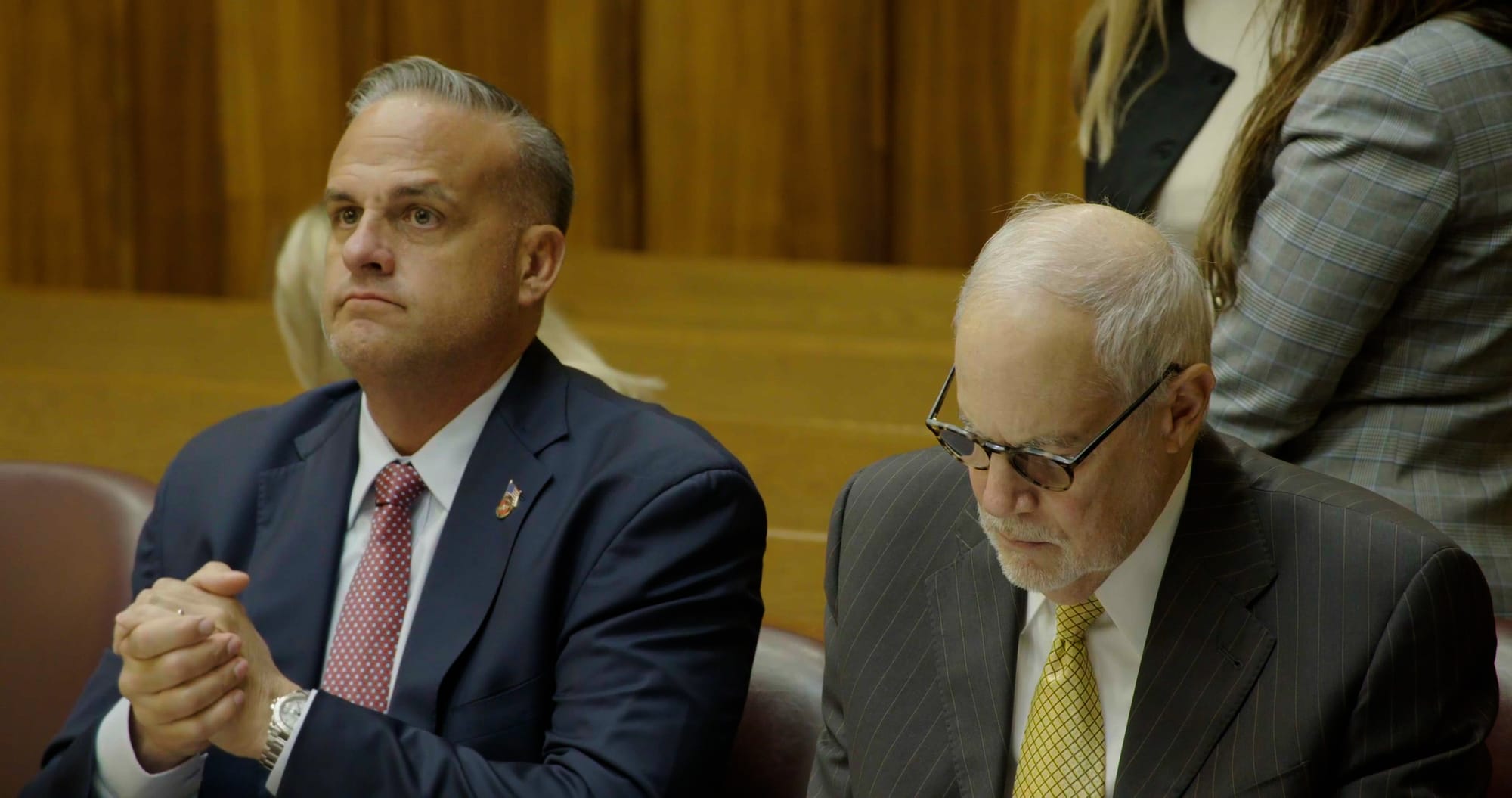
“Were it not for intrepid reporting by a number of folks, including Floodlight and others, we would never have known that Florida Power and Light was ultimately a source of this money,” said Rodriguez, assistant labor secretary in the Biden administration.
Terry is participating in a documentary by The YEARS Project titled “The Jobs Myth” showing how promises by heavy industry to employ residents of fenceline communities rarely materialize. Instead, places like Louisiana’s “Cancer Alley” end up with even more pollution — and few job opportunities for the people of color who live there. Terry’s coverage of the issue started with a chance encounter with Tulane University researcher Kim Terrell in 2023 and continued into 2024.
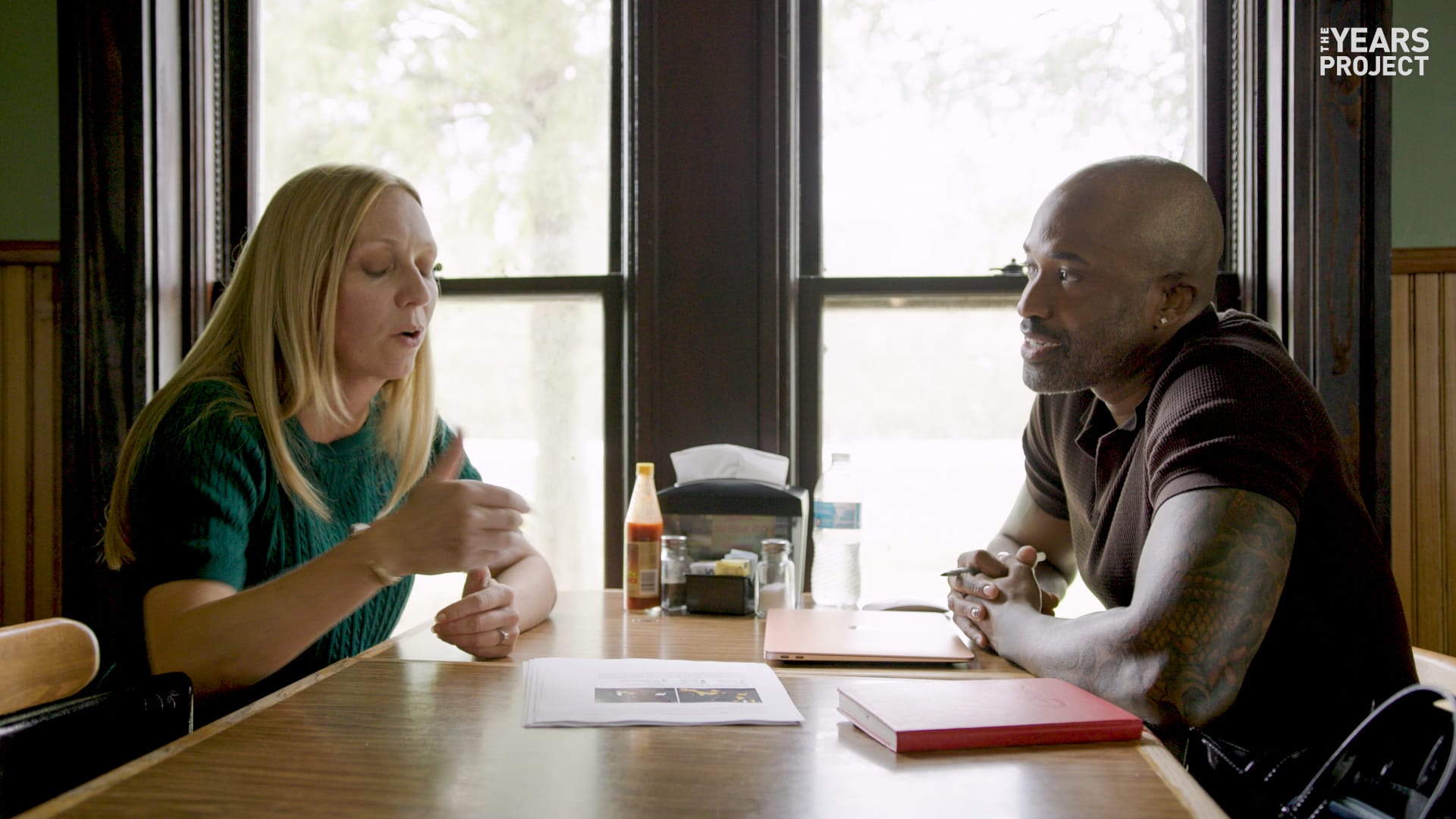
Executive Director Emily Holden is leading strategy on a new Climate News Task Force, which will explore how member newsrooms can amplify each others’ work through collaboration and story-sharing. The task force also will explore how to better fund the crucial work of climate journalism.
The task force is in partnership with the Council for the Advancement of Science Writing (CASW) and the Reynolds Journalism Institute. The vision for the task force stems from a report on the state of climate journalism that Emily wrote with support from the Meliore Foundation and its Field Intelligence on Strategic Communications project. It is also inspired by research by CASW Executive Director Meaghan Parker. The task force is supported by the John D. and Catherine T. MacArthur Foundation, the Walton Family Foundation and the Meliore Foundation.

Floodlight staff are leaders in the climate journalism space in other ways, too. Emily and Chief Operating Officer Lee Pedinoff in partnership with Drilled organized a two-day training at the Society of Environmental Journalists’ annual conference in Philadelphia on how to investigate and report on mis- and disinformation about climate. Floodlight reporters Pam, Miranda and Mario were among the speakers.
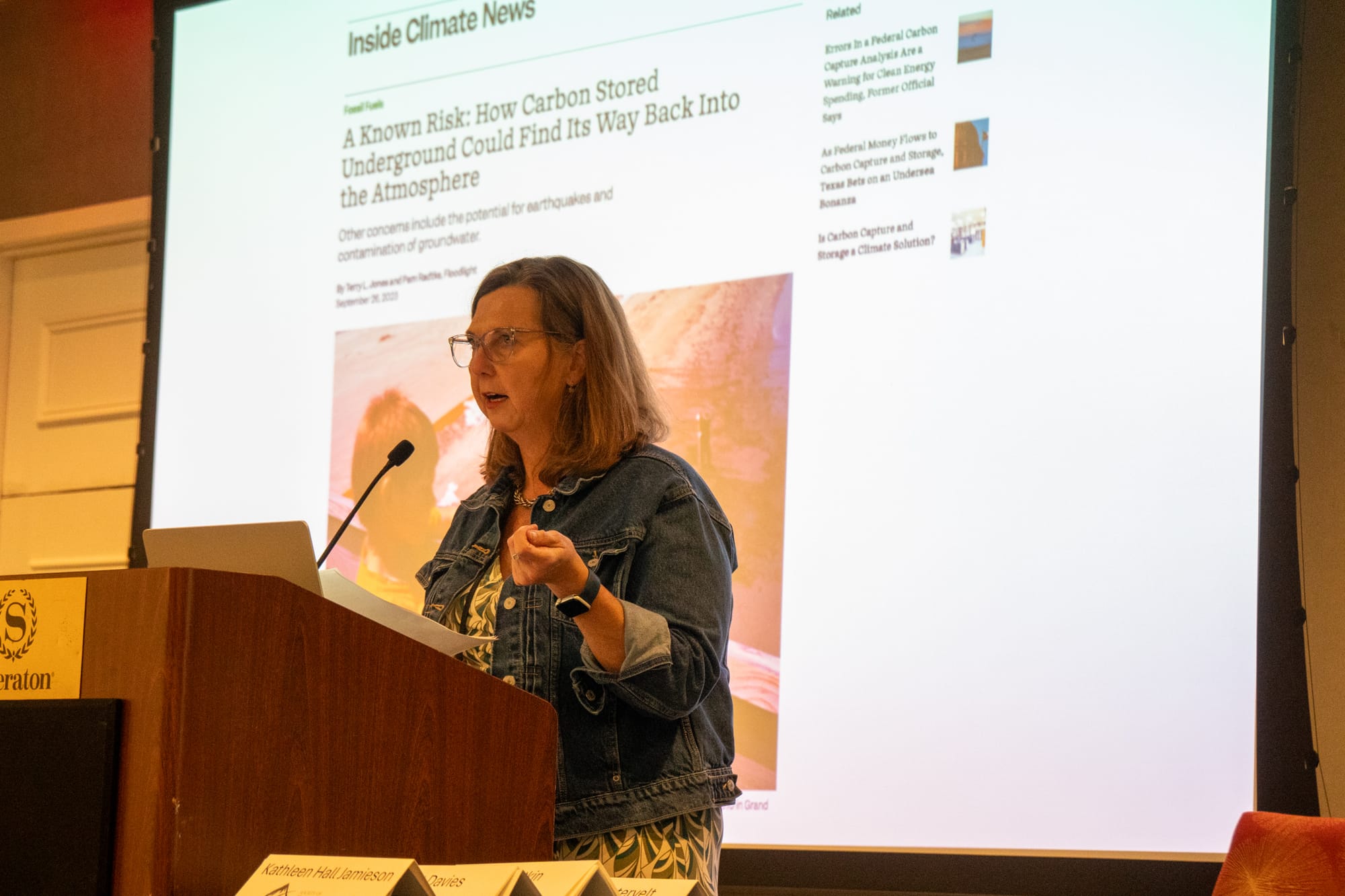
Miranda also spoke at the national Investigative Reporters and Editors conference in June on how to follow the money fueling the climate crisis. And Mario spoke at the National Association of Hispanic Journalists national conference on how to use data to investigate environmental justice issues.
What's next
We have big plans this year. Our ability to take on big, groundbreaking investigations — and to build the broader climate media ecosystem — is only possible with the support of people like you. If you’d like to support our work, please consider making a donation.










